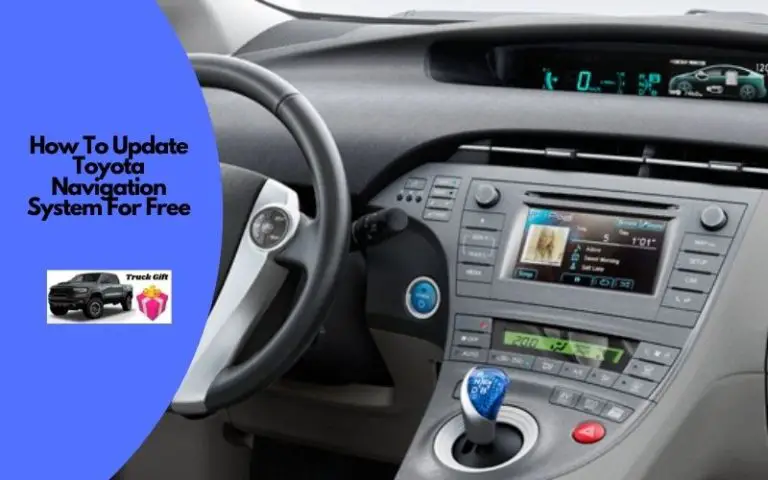What Does Braking Power Low Mean On Toyota
Braking power low is an important issue that should not be disregarded. A brake fluid leak can low braking power and cause an accident. As a result, the braking system is critical to the safety of your car.
Low brake fluid levels, worn brake pads, rotors, or calipers, a faulty master cylinder, blocked or distorted brake lines, and brake fade due to overheating are all possible reasons of low braking power in Toyota automobiles.
For example, low braking power might cause the car to collide with other vehicles when attempting to stop.
The scenario in which the driver presses the brake pedal but the vehicle does not brake is a driver’s worst nightmare, but there is a way to avoid it: regular maintenance of the braking mechanisms.
This might cause automotive troubles that are extremely inconvenient for drivers and passengers. In this post, we’ll look at how to solve low braking power in Toyotas.

How Does The Power Braking System Work?
In the booster braking power system, the engine acts as a generator for the brakes. The engine is powered by the batteries, while the brakes are powered by the gearbox. The engine also drives the cooling system.
The vacuum booster is one of the integral parts of the vehicle’s braking system. Its main purpose is to increase the force transmitted from the pedal to the main brake cylinder.
Due to this, driving the car becomes easier and more comfortable, and braking is effective.
It is critical to understand how to stop your automobile without utilizing power brakes, as they will not function if the engine stops or stalls while you are traveling. Use the brake pedal to come to a fast stop.
What are the causes of braking power low?
You can see that the Toyota’s braking power low can cause a variety of problems. Some of them are described below.
1. The brake fluid level is low
A low fluid level is caused by excessive pad wear. It is frequently related to leaking. Leaks in the master cylinder, hoses, calipers, and tubes should be thoroughly examined by the driver. Elements that are broken should be replaced.
If the driver discovers a significant leak during the inspection, he should not operate the vehicle until the source and extent of the leak are determined.
The truth is that the loss might worsen during operation, resulting in emergency brake failure. All road users will be put in danger.
As a result, it is critical to monitor the brake fluid level and ensure that there is always enough.
2. Worn brake pads
Brake pads are used to slow or stop a moving vehicle by applying pressure to the wheel disc rotors.
As a result, in order for the brake power system to be as effective as possible, the brake pads must be in good condition.
Unfortunately, brake pads will wear out over time since they are subjected to friction every time they are placed against the rotors.
Brake pads that are severely worn will not provide enough pressure to the rotors.
As a result, when the pedal is depressed, the braking force of the vehicle is reduced.
Furthermore, aged brake pads can harm the rotors, which are the metal discs against which the pads push.
Braking power: depending on when you press the brakes, this damage might cause a reduction in braking force and an increase in noise.
3. The automobile is driving sideways
This is where the majority of low braking power system problems begin. If the automobile drives sideways, you must be cautious since it endangers people’s safety.
Reasons for the automobile drive sideways:
- Pads are wearing unevenly.
- Pads that are oily or excessively dirty at the pads.
- Brakes that have been improperly or incorrectly adjusted.
- Brake calipers are filthy.
In reality, at least ten causes contribute to this issue. This may also involve incorrect tire pressure, which must be addressed.
4. The antilock braking power system has been turned on
The antilock braking system should only be used when braking quickly. It controls the opening and shutting of the booster valves, which adjusts the braking power.
It can, however, malfunction and trigger even when traveling at a moderate pace.
Fortunately, a malfunctioning ABS is easy to diagnose because its action is not felt during rapid braking. As a result, repairing it will help you get rid of your low braking power.

5. Possibility of presence of air in the brake lines
When you press the brake pedal on your Toyota, hydraulic fluid is transported to the calipers via the brake lines.
Also, it boils and produces water vapor. Water vapor, as you may know, is made up of oxygen. This oxygen takes up space in the brake lines, softening them.
Fortunately, you do not need to take your automobile to a professional to resolve this issue.
Air in the brake lines can enter the brake lines through a variety of channels, including during maintenance. Furthermore, brake fluid absorbs ambient water, lowering its boiling point.
As a result, braking capability may be compromised. Blowing the brake lines eliminates air bubbles from the fluid, restoring the vehicle’s braking capacity.
6. Changes in brake pedal feel
Changes in the feel of the brake pedal. If you step on the pedal and it seems overly firm, the brake pads are probably dusty, discolored, or crystallized.
It might also be due to a caliper piston issue, brake disc damage, brake servo failure, or a brake fluid issue.
If, on the other hand, you notice that the pedal is too soft, it might be due to a distortion of the brake hoses, which causes the fluid pressure to increase and reduce the hydraulic pressure reaching the pistons.
7. Noise when braking
High-frequency noise, screeching, and whistling can occur while braking and, in rare cases, regular driving.
This is due to excessive friction between the friction material and the surface of the brake disc. The brake pad might have fallen away from its mounting.
8. Brake lines that are clogged
To create maximum braking force, brake fluid must flow freely in the brake line. Accidents, on the other hand, might cause the brake line to kink.
Furthermore, if the brake fluid is overheated, it might burn off and solidify, clogging the brake lines. Such occurrences disrupt the flow of the brake line, resulting in decreased braking power.
The good news is that cleaning the impurities out of the brake lines will solve the problem.
However, if the brake line is bent, it is best to replace it since bending it might cause it to break or become loose.
9. Master cylinder may be defective
The master cylinder, like the brake lines, serves an important purpose in your car.
It is in charge of retaining the hydraulic fluid and producing the hydraulic pressure that aids the braking power system.
It can, however, wear out due to mechanical damage or old age. Brake fluid will spill from it in this event.
Furthermore, the hydraulic pressure will fall. Both of these cases will result in low braking power.
If pressure is lost, the brakes will be unable to deliver enough brake power to stop the car. This is a severe safety concern since it can lead to an accident.
10. Brake overheating
A burning odor is generally indicative of this sort of problem. This is typically accompanied with increased pedal travel, which started to feel uncomfortable, as well as increased braking distance.
Overheating can be caused by both overly aggressive driving with frequent braking and little forgetting, such as a tightened parking brake.
11. Faulty vacuum pump
The vacuum pump job is to remove air from the vacuum booster, generating a vacuum. By requiring less force, this vacuum enhances brake power. A vacuum pump is used in the brake system to produce negative pressure in the brake lines.
The vacuum increases braking power while requiring less force. If you have a faulty vacuum pump, you will have low brake power, especially if you do not apply much force to the pedal.
The following symptoms suggest that the vacuum pump needs to be replaced:
- The heating control does not function;
- A hissing sound is heard;
- The brake pedal must be pressed firmly.
If the vacuum pump isn’t operating correctly, it won’t be able to generate enough negative pressure, which means the brakes won’t be as effective at stopping the automobile.
This may be a severe safety hazard since it leads to greater stopping distances and difficulty braking in an emergency.

12. Faulty brake booster
A faulty brake booster can result in low braking power.
These functions guarantee that the brake power is optimal. As a result, if the valve fails, the vacuum in the brake booster is lost, resulting in low braking power.
If there is engine slack when the pedal is applied, the booster check valve is faulty and must be replaced.
How can I fix braking power low in my Toyota?
You’re probably wondering how to fix braking power low in your automobile now that you’ve learned about some of the most prevalent causes.
Here are some popular solutions to this issue:
1. Brake fluid replacement
Damage symptoms include a low amount of braking fluid in the cylinder’s expansion tank and the possibility of system depressurization. Keep an eye out for fluid leaks as another indication of injury.
Insufficient brake fluid results in insufficient pressure being given to the brakes, resulting in lower stopping force. Adding extra fluid frequently resolves the issue. Use the appropriate type of brake fluid for your car.
Also, using the incorrect kind might result in significant consequences. Adding brake fluid may appear to be a simple remedy, but it may frequently make a significant difference in braking power.
2. Worn brake rotors
To stop the wheels, the calipers, brake pads, and rotors all work together. When you press the brake pedal, the brake pads and rotors make contact and the wheels halt.
However, friction causes the rotors to wear down over time. Replace the damaged brake rotors as a remedy.
3. Bleeding the brakes
Bleeding the brakes is a popular solution for low braking power. It raises the pressure in the system, providing additional braking power.
When you initially start pumping, the pedal may seem firm, but it will soften as you continue. This is typical and indicates that the pressure is balancing.
if the pedal still feels soft after bleeding, or if you have any other issues with your brakes, make an appointment with a specialist as soon as possible.

Asked questions:
What causes loss of braking power?
Braking power system malfunctions arise as a result of both natural causes and aging of system components, as well as late, inadequate, or inappropriate brake system maintenance.
The following are the most common causes of braking power low failures:
- The presence of traces of brake fluid in the parking lot indicates the necessity for an urgent check of brake fluid levels.
- Brake pad wear.
- Electronic control module failure.
- Failure of the master cylinder.
These are simply the most prevalent failure indicators. It all relies on the system’s architecture and the present traffic scenario.
What does it mean when brake is low?
The vast majority of damage to the brake system can be detected by the driver during a thorough inspection of the components. Cracked brake hoses are a potential hazard and should be replaced on the vehicle in good time.
Air in the system is the most prevalent reason for low braking power. The simplest approach to identify this problem is to gently depress the brake pedal multiple times. With each gradual lowering of the pedal, the pedal should grow firmer.
In any situation, damage to the braking system must be identified and repaired in time because it directly affects someone’s life, and sometimes more than one.
What can cause low brake application?
When braking power is low the brakes are not as responsive when the brake pedal is depressed with low braking power.
In some cases, drivers had even reported that their car completely failed to stop when they applied the brakes.
What is a braking power?
In short, it is the ability of the braking system to make a car stop. If the braking system detects an impending accident, it retracts all slack from the seatbelts and enhances braking power.
Final Thoughts
Toyota automobiles, like other vehicles, frequently have low braking power, making it difficult to properly slow down or stop.
A shortage of braking fluid, clogged or bent brake lines, air in the brake lines, and aged brake pads near the brake discs are all possible causes.
In addition, braking system faults arise as a result of both natural causes and the aging of system components, as well as late, inadequate, or inappropriate brake system maintenance.
Your car’s low braking power is a severe problem. In any case, keep in mind that proper brake maintenance will avoid future difficulties, so check the system at least once a year.
Read also: How To Build a Kayak Rack for Your Truck? (Easy Steps)


![How To Fix Sagging Door On Chevy Truck? [3 Easy Steps]](https://truckguidepro.com/wp-content/uploads/2021/08/How-To-Fix-Sagging-Door-On-Chevy-Truck--768x480.jpg)

![How To Check for Defective Mass Air Flow Sensors? [Symptoms]](https://truckguidepro.com/wp-content/uploads/2021/08/Ways-to-Check-for-Defective-Mass-Air-Flow-Sensors-768x480.jpg)
![How To Adjust Camber On Chevy Truck? [5 Easy Steps Guide]](https://truckguidepro.com/wp-content/uploads/2021/08/How-To-Adjust-Camber-On-Chevy-Truck-768x480.jpg)

